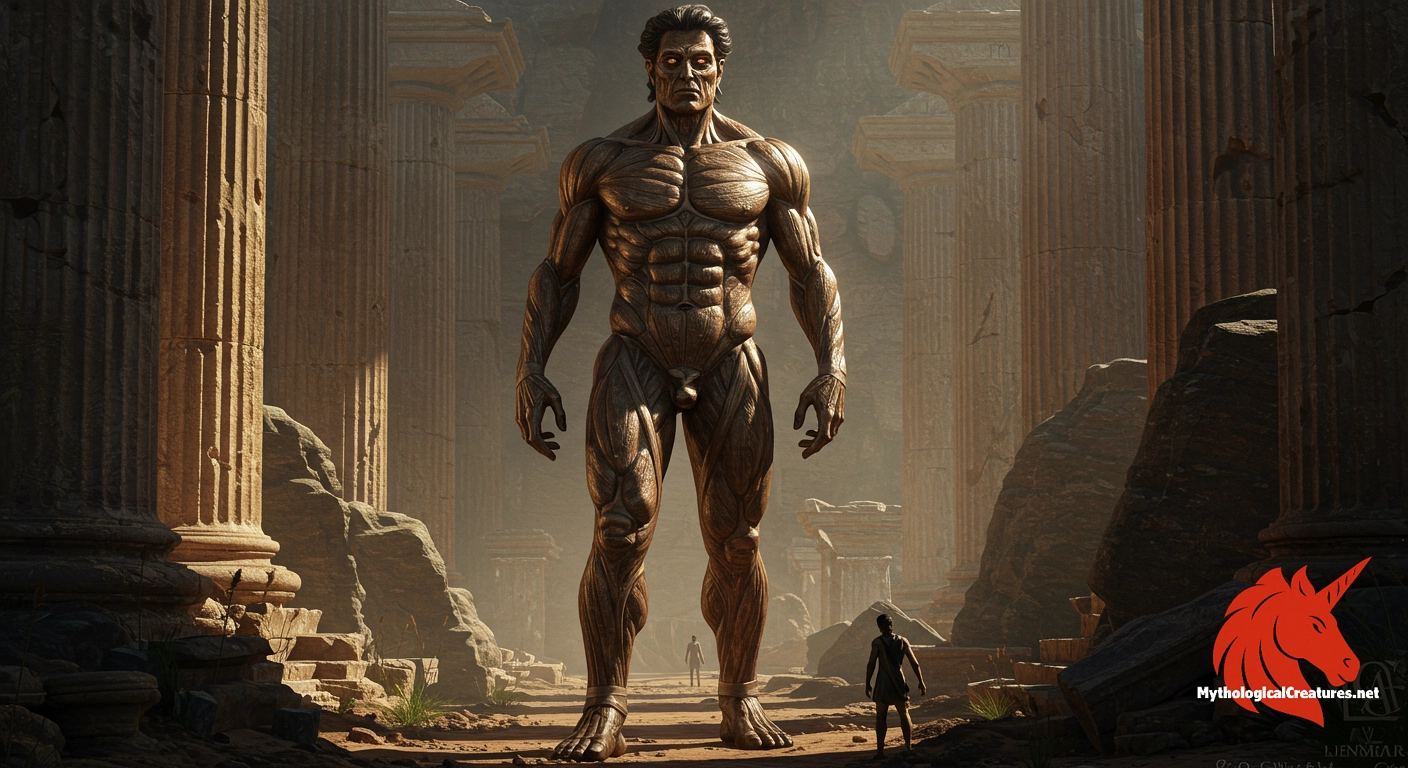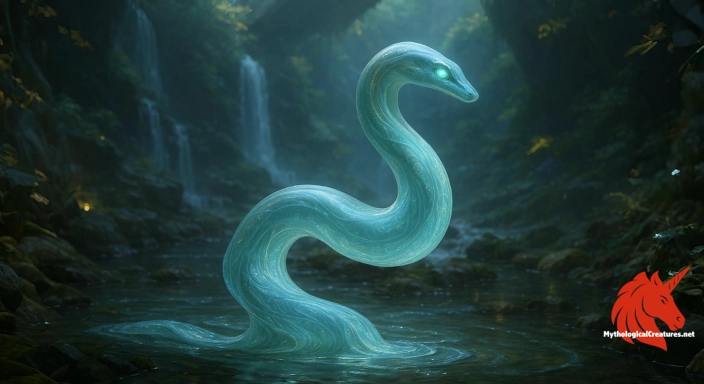Coeus: Coeus is a Titan from Greek mythology known as the Titan of Intelligence and Inquiry.

Coeus
Coeus - Represents the quest for wisdom and the inquisitive nature of the cosmos.
Origins & First Encounters
Coeus emerges as one of the ancient Titans in Greek mythology, a figure whose name resonates with the spirit of inquiry and intellectual pursuit. Born from the union of Uranus and Gaia, his origins are inseparable from the primordial forces that orchestrated the birth of the cosmos. His presence in the mythic narrative symbolises the capacity to question the established order, an attribute that was highly valued in a culture steeped in philosophical thought. Often referred to as Polus, his alternative appellation further hints at layers of meaning embedded within his character. Integral to a pantheon defined by immense power and the interplay of natural forces, Coeus is a reminder of the ancient world’s reverence for wisdom and reflection. His familial association with other Titans adds depth to his enigmatic persona and links him to the broader cosmic struggle between the old and the new. Even though direct exploits involving him are sparse in surviving traditions, the subtle impressions of his role reverberate through later philosophical and literary references. His myth invites us to consider the duality of brute strength and a probing mind that seeks to understand the mysteries of the universe. The legacy of his inquisitive nature has echoed down the ages, establishing a symbolic connection to the quest for knowledge and enlightenment. In this way, Coeus encapsulates the timeless interplay between might and mind in ancient Greek thought.
Source Texts & Tale Variants
Ancient literary sources offer brief yet compelling glimpses into the world of Coeus, with texts such as Hesiod’s Theogony listing him among the revered generation of Titans. Over time, assorted mythographical works have extended these glimpses, weaving subtle nuances into his myth and underscoring his association with the intellectual realm. Some ancient accounts recount his lineage and family ties, emphasising his connection with other formidable deities in the Titan hierarchy. Variants of his story sometimes place him alongside his consort, Phoebe, in narratives that hint at the origins of later divine figures in the Olympian pantheon. While many of these texts offer only fragmented details, they collectively contribute to a larger tapestry of myth that venerates his role in the cosmic order. Different recensions and local traditions have occasionally modified the details of his myth, leading to multiple interpretations over the centuries. In some versions, his questioning nature is portrayed as a pivotal element in the unfolding of events that led to the Titanomachy. These narrative fragments underscore a legacy that is as much about philosophical pondering as it is about divine lineage. The scattered attestations in ancient sources invite modern readers to piece together a character whose significance transcends the brevity of surviving texts. Ultimately, the multiplicity of story variants enriches the mythological landscape surrounding Coeus, offering a fertile ground for both scholarly enquiry and imaginative reinterpretation.
Form & Powers
Artistic depictions of Coeus often evoke the image of an imposing figure whose physical form mirrors his intellectual gravitas. He is typically portrayed with a robust, statuesque build that embodies the enduring strength attributed to the Titans. His face is rendered with solemn features and deep-set eyes that seem to harbour the secrets of the cosmos. Classical art has suggested that his visage, marked by a prominent brow and a contemplative expression, symbolises the melding of raw power and refined wisdom. Sculptures and pottery from antiquity sometimes capture him with a dignified pose that elevates his role as a guardian of inquisitiveness. The visual iconography associated with Coeus frequently incorporates subtle cosmological motifs, possibly alluding to his connection with the celestial sphere. Many depictions highlight an aura of quiet authority, one that speaks to both physical might and a profound cognitive capacity. Variations in artistic style over the centuries have led to portrayals where his muscular form is softened by a certain gentleness, suggesting a reflective temperament underlying his strength. In these representations, every line and curve appears designed to evoke a sense of ancient mystery and unwavering determination. Such enduring images continue to influence how modern audiences visualise the Titan’s enigmatic presence.
Regional Faces
Across the diverse regions of the ancient Greek world, the figure of Coeus was reinterpreted to align with local customs and cultural expressions. In some city-states and rural sanctuaries, his myth was intricately woven into local cult practices that celebrated the virtues of intellectual inquiry and the mysteries of the natural world. Regional adaptations often emphasised aspects of his persona that resonated with the local appreciation for celestial phenomena and philosophical discourse. In certain locales, festivals and rituals subtly honoured his contribution to the celestial order, symbolising the link between divine forces and human curiosity. These local traditions sometimes cast him in a more accessible light, transforming him from an aloof Titan into a patron of wisdom and thoughtful reflection. Community-specific legends might blend his myth with that of nearby deities, resulting in a syncretic portrayal reflecting regional beliefs. Urban centres, with their rich intellectual traditions, occasionally celebrated his name as an emblem of nascent scientific thought and logical inquiry. Meanwhile, in more remote areas, his image merged with the elemental forces of nature, highlighting the interplay between the cosmos and the earthly realm. The resulting mosaic of interpretations underscores a dynamic cultural legacy where Coeus was both a distant cosmic power and a symbol intimately entwined with local identity. These regional variations add a rich layer of complexity, underscoring the adaptability and timeless appeal of his myth.
Cultural Parallels
The intellectual essence of Coeus finds notable parallels in various mythological traditions, revealing a shared human fascination with the nature of wisdom and the cosmos. In many ways, his attributes echo those of other divine figures whose narratives blend might with a profound cognitive prowess. Parallels can be drawn, for instance, with the figure of Odin in Norse mythology, a deity celebrated for his relentless pursuit of knowledge, even though the cultural contexts differ significantly. Similarly, several ancient Near Eastern myths feature deities who preside over the mysterious realms of the mind and the skies, reinforcing the universal appeal of combining strength with reflective insight. The archetypal motif of a wise, questioning deity is evident across cultures, serving as a testament to humanity’s enduring quest for understanding. While Coeus is firmly embedded within the Hellenic tradition, the themes his myth embodies resonate with a wider international array of spiritual narratives. This cross-cultural dialogue illuminates how different societies have grappled with the same existential questions. The subtle interplay between power and intellect defined in his story is a recurring motif that transcends geographical and temporal boundaries. Through comparative analysis, it becomes clear that the figure of Coeus not only enriches Greek mythology but also contributes to a broader tapestry of mythic wisdom shared across civilizations. His legacy, therefore, is both uniquely local and universally resonant, bridging diverse cultural expressions of the quest for knowledge.
Legacy & Modern Evolution
The narrative of Coeus has evolved steadily over the centuries, transitioning from a shadowy figure in ancient cosmogonies to an emblem of intellectual exploration in modern thought. His portrayal in early Greek myth laid the foundation for a legacy that would be reinterpreted and repurposed through successive art movements and philosophical discourses. During the Renaissance, the revival of classical texts and the renewed enthusiasm for myth prompted a reimagining of Coeus as a prototype of scientific inquiry and cosmological wonder. His association with probing questions and the drive for understanding resonated with the era’s burgeoning spirit of exploration and discovery. In contemporary cultural contexts, he is sometimes invoked as a metaphor for the relentless pursuit of knowledge and the enduring mystery of the universe. Modern literature and art have reinterpreted his myth in a variety of ways, underscoring his connection to themes of curiosity, academic rigour, and the natural wonder of existence. While he may not be as prominently featured as some Olympian deities, his subtle influence is evident in discussions that merge classical mythology with modern scientific and philosophical ideas. The adaptability of his image reflects an enduring human optimism for finding order in chaos. Today, Coeus continues to inspire creative reinterpretations, providing a timeless symbol of the quest to understand our place in the cosmos. His evolving legacy remains a testament to the power of myth to illuminate the persistent human drive for wisdom and exploration.
Interesting Fact
An intriguing aspect of Coeus is that his very name encapsulates the essence of intellectual inquiry, highlighting the value of wisdom in the ancient mythological tradition.
Quick Creature Info
Origin:
Our Mythic Legendary Rating:

Also Sometimes Known As:
Habitat:
Supernatural Powers:
Physical Attributes:
Abilities:
Behavior:
Lore:
References
Discover Another Mythical Legend You May Not Have Heard Of?
Uncover the mysteries of ancient folklore and expand your knowledge of legendary beings from cultures around the world.
Dare to Meet the Piriawis....
Curated by the Mythological Creatures Team (rev. May 2025)
